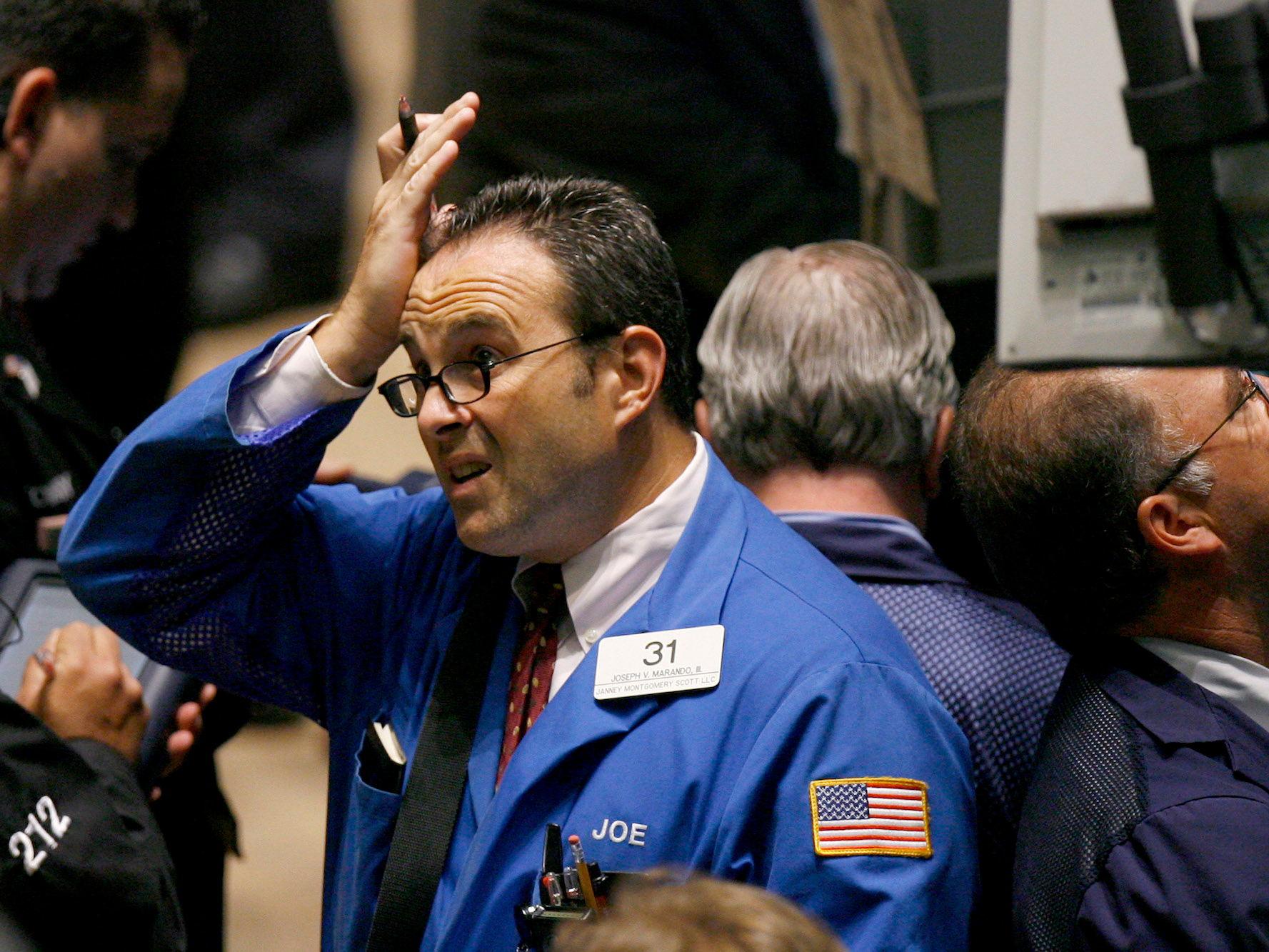- Fund managers surveyed by Bank of America Merrill Lynch in July are becoming more concerned about monetary policy impotence.
- While some have added risk and reduced cash, most are still positioned for low inflation and low growth.
- The Federal Reserve is expected to cut rates in July, but the path after that is murkier.
- It’s also unclear how much further a rate cut will boost stocks, which are already near record highs.
- Read more on Markets Insider.
As the trade war stagnates, investors are pinning anxiety on a new fear.
Fund managers on Wall Street are becoming increasingly worried about how the actions of the Federal Reserve will impact growth and inflation rates going forward, according to a monthly survey conducted by Bank of America Merrill Lynch. The global version of BAML’s fund manager survey consists of 162 participants overseeing $489 billion.
While the trade war is still the biggest tail risk fund managers see, it declined to 36% in July from 56% in June. The second-most voted-upon risk – monetary policy impotence – jumped this month to 22%. That means that for nearly one quarter of fund managers, the biggest tail risk they see to markets is dependence on the central bank for a boost.
The shift come as the trade war drags on as talks between the US and China have resumed. With trade less of a threat, fund managers are turning eyes to other risks that could be a drag on markets. Even though the S&P 500 just topped 3,000, some experts are wondering if the level is a ceiling for stocks.
The Federal Reserve is likely to cut interest rates this month in an effort to juice the US economy and keep the expansion, currently the longest on record, running. But fund managers seem concerned that the Fed's actions won't be enough. A majority of 79% of fund managers think both global growth and inflation will be below-trend for the next 12-months, even as 69% expect an interest rate cut in July.
That may be because just how much the Fed will ultimately cut is still in question. While it's a foregone conclusion that the central bank will lower rates by at least 25 basis points in July, the path beyond that is far murkier.
To be sure, fund managers did add risk in the last month and add cash as central banks have turned increasingly dovish, which is generally a good thing for market performance. But investor sentiment has stayed cautious.
BAML says in the survey that the summer "pain trade" remains up in stocks and yields. Since the June survey, bond yields haven't changed and the S&P 500 is above 3,000.
Fund managers are still positioned for low growth and low inflation. Safe haven assets, US Treasurys, were the top most crowded trade for the second month in a row. Fund managers are staying long bonds over equities, positioning for emerging markets over developed ones, and putting weight behind defensive stocks.

